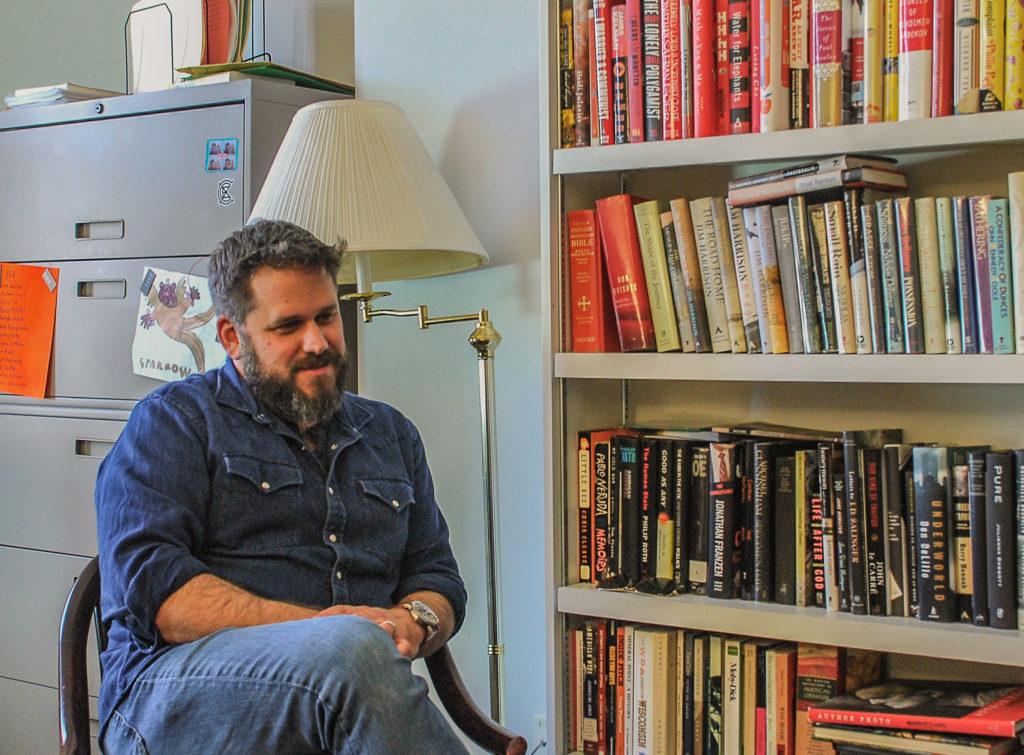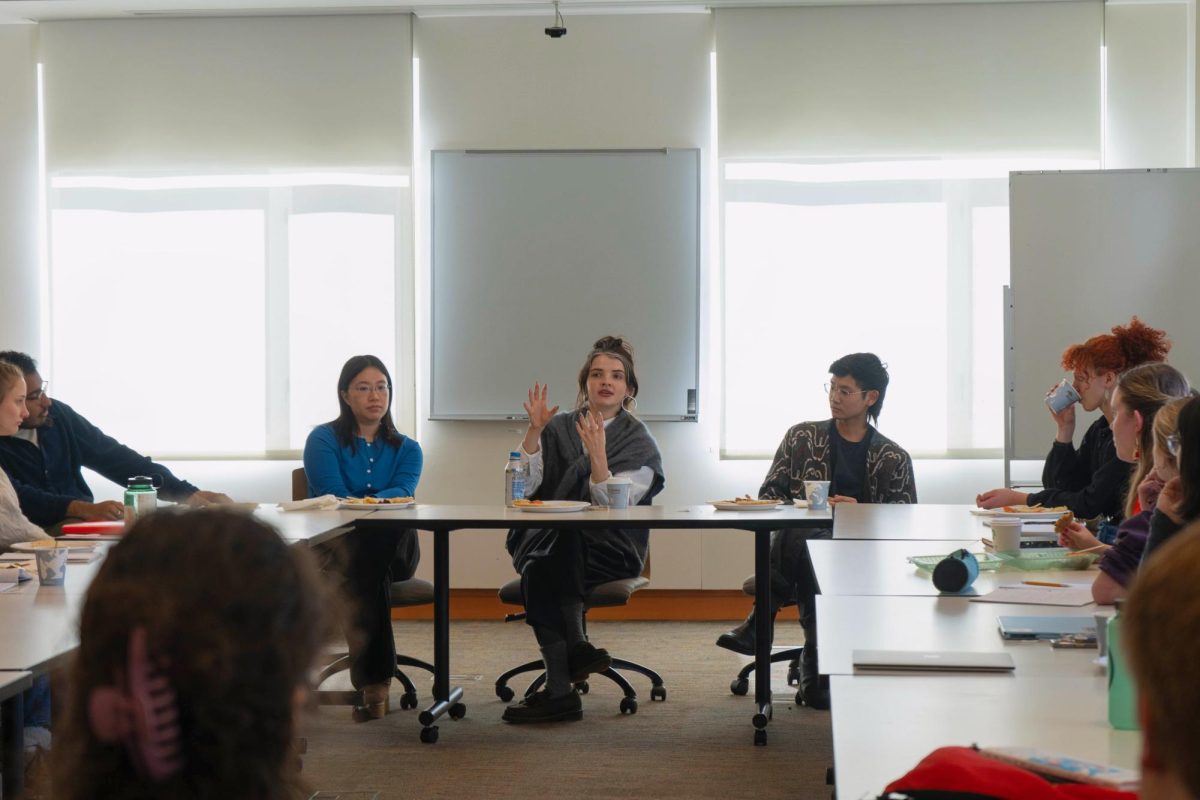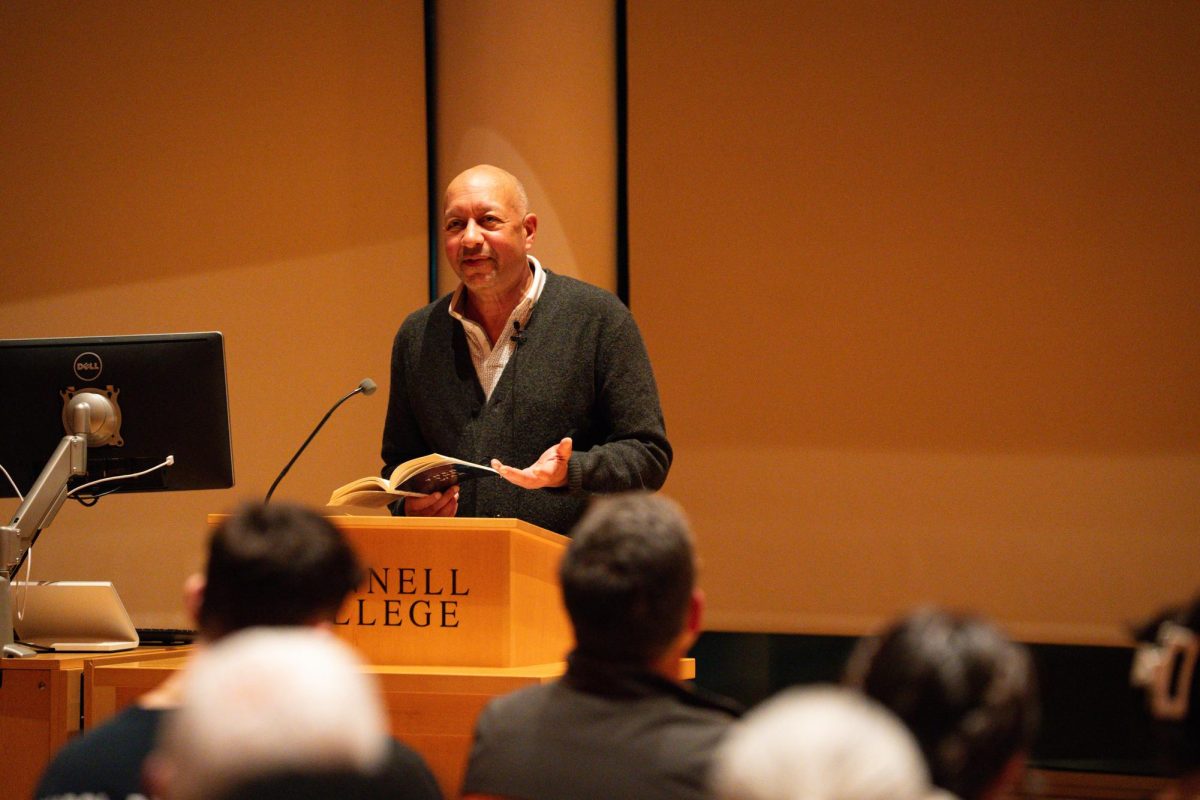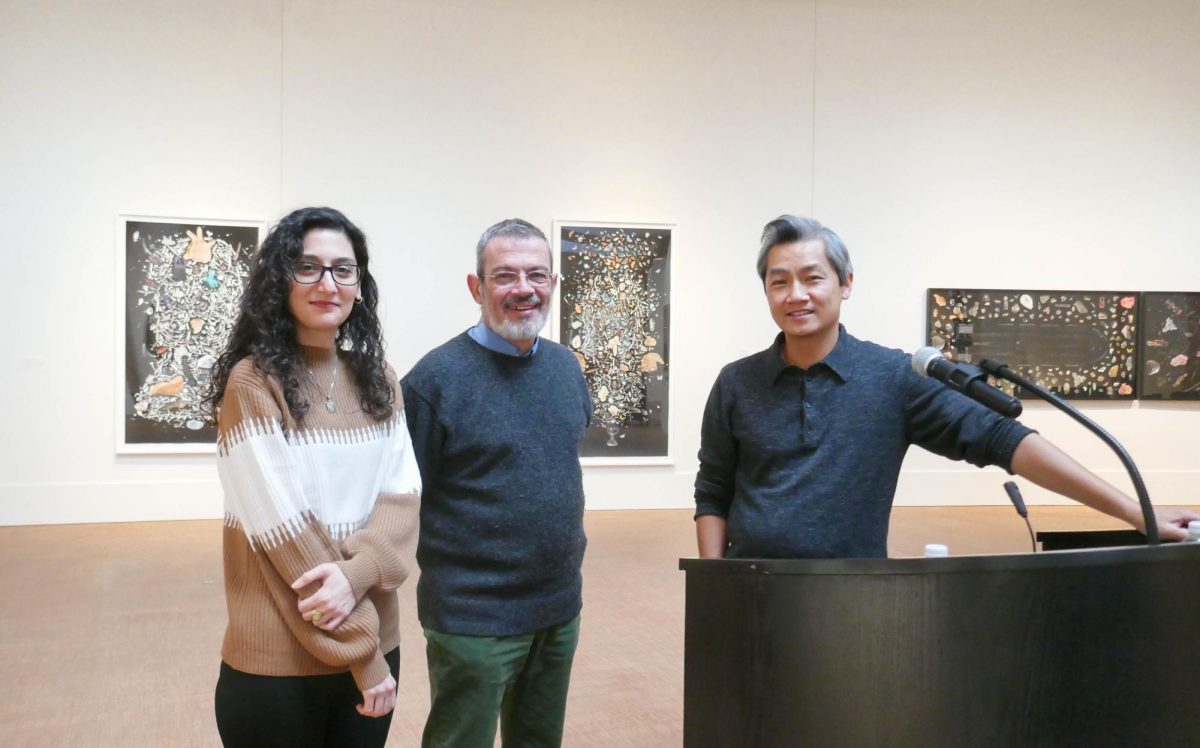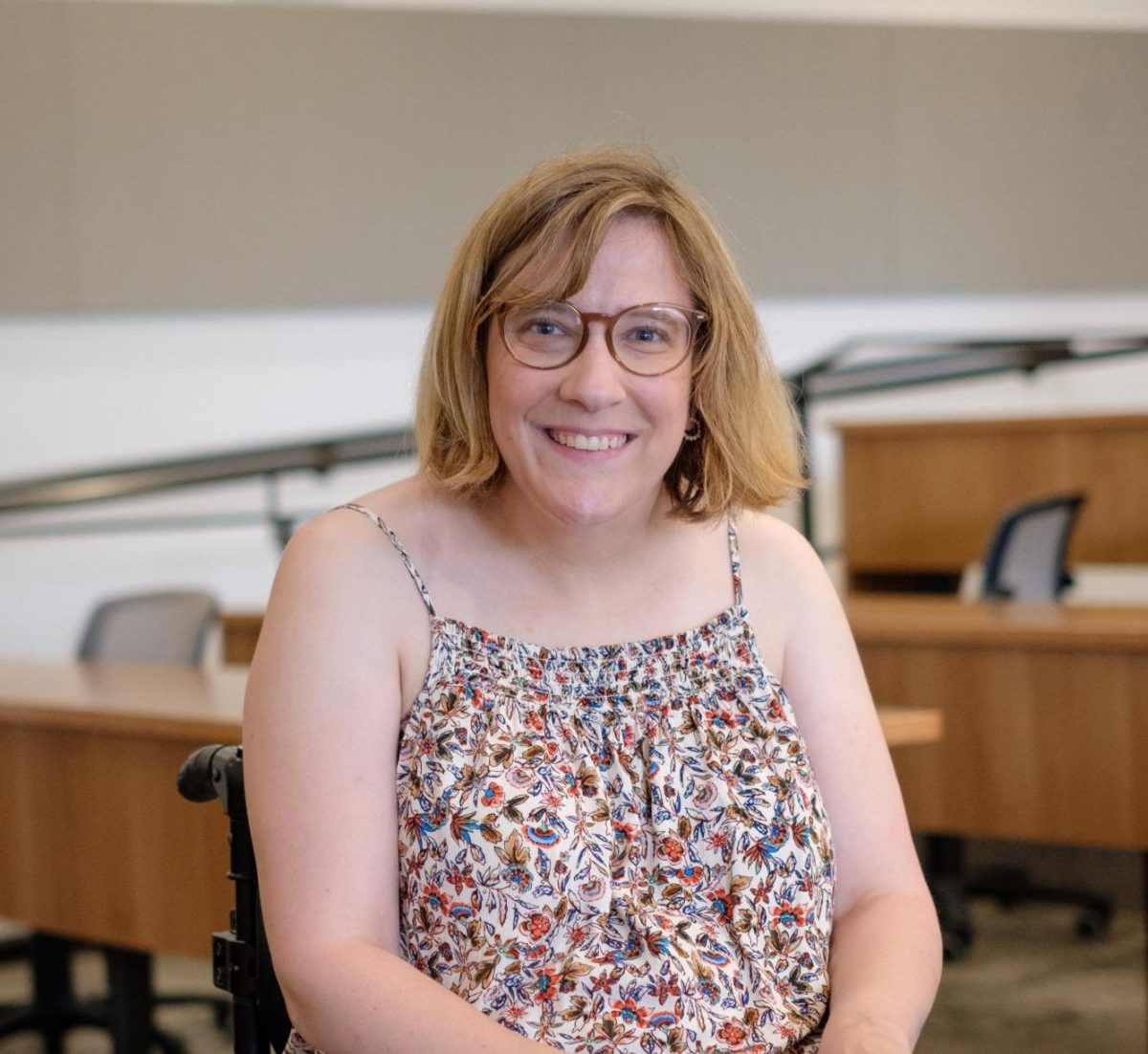For regular attendees of Writers @Grinnell, Thursday evenings are sacred. Similar to writing itself, attending a reading is usually seen as a solitary activity. However, at the core of these events, a sense of campus community and inclusivity pervades the atmosphere. Each reading is not a discrete entity, but a small part of a larger whole, carefully curated to bring writers, poets, artists and the campus community together.
Writers@Grinnell co-coordinators Dean Bakopoulos and Alissa Nutting have striven to promote the program in a variety of ways, carefully choosing which authors to invite over the course of the semester.
“The whole thing is supposed to work symbiotically,” said Bakopoulos. “I don’t just look at each event as an event and then it’s over, I look at the whole trajectory of the school year.” This year, Bakopoulos and Nutting handpicked each visitor.
“One of my main concerns is diversity,” said Bakopoulos. “And not just cultural diversity, which is something most reading series in 2019 are aware of, but also trying to be cognizant of the fact that with a small creative writing faculty, there are limitations to our own diversity. Not just culturally, but also in terms of how we teach and what we teach.”
Bakopoulos, Nutting and the rest of the advisory committee engage in an extensive selection process in order to bring the most engaging, stimulating and interesting writers to the Grinnell community.
“On the more spiritual level, I am interested in writers that are inspiring,” said Bakopoulos. “Writers who have stories that inspire me, or present in ways that are inspiring, or who have gone through a thing or two.”
Drawing inspiration from his own days in a creative writing program as an undergraduate, Bakopoulos understands the potential influence these speakers can have on their audience of student writers and poets.
“When you’re in your twenties and getting rejected all over the place and working on your first
book, and your career looks terrible to the outside world, because in your twenties you don’t have a career as a writer … it was those seven years between college and my first book when I kept hearing their voices, ‘This is a hard road, and if you’re going to do it you better get ready to do it and stick to it.’ It was so important for me to create something like that here.”
Bakopoulos cites his mentor Charles Baxter, who will be reading at Grinnell next fall, and Nobel Prize-winning author Kazuo Ishiguro as being influential during his formative college years.
“What I remember more than any one person was how nice they all were,” said Baukopolos. “Here I was asking the dumbest questions at these roundtables, just like we do here, and they look at you like you’re their peer. So, I try to bring in writers that make you feel like you could be part of this profession, the literary profession, a profession that has given me a community that I didn’t even know was going to be there.”
These readings, however, are not just a way to connect students with the literary community. To Bakopoulos, they also serve as a way to bring the student body closer together.
“There’s no data on this, and you can’t really assess this with metrics, but I know that students make friends at these events and meet people because of Writers@Grinnell. I don’t remember the content from when I attended these events in college, but I remember looking around and gradually making friends with the people in the room,” he said.
Bakopoulos’ favorite part of be- ing co-coordinator is the “magic” occurring when a writer meshes with the Grinnell Community.
“What’s beautiful to me is when you bring people that are just great people and writers, and they see your community, and they love Grinnell when they’re done, and Grinnell loves them. That’s probably the most gratifying part. You never know which ones are going to be magic, but at the end you can just tell.”
